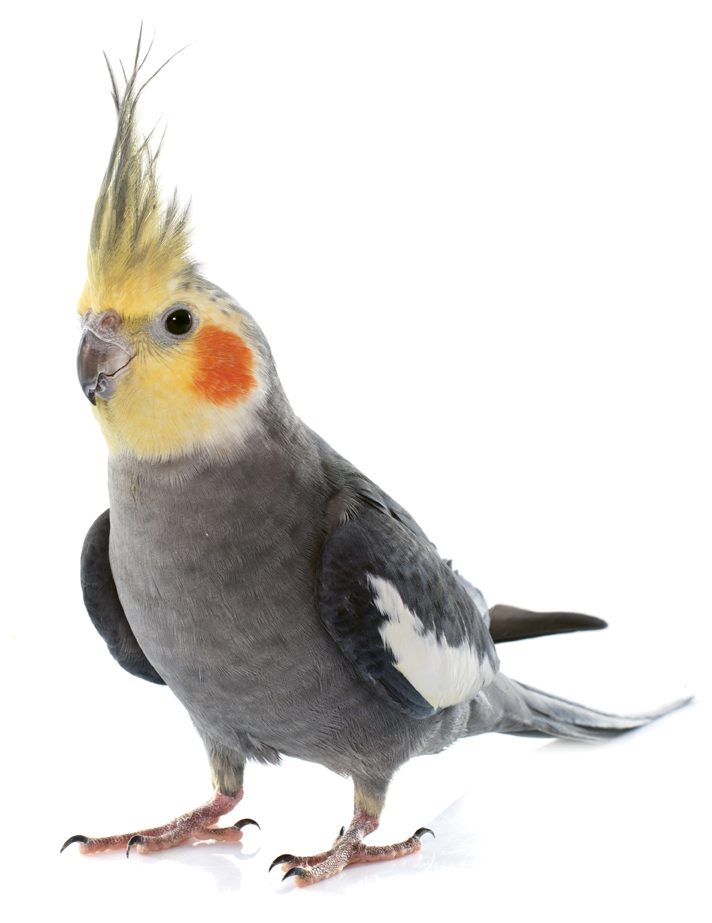Leadership
“Whattayadoin?” The value of personal and professional exploration
Size can be deceptive. Napoleon was a wee thing—a cockatiel that measured just eight inches long, plus tail. And as cute as the little orange buttons on his cheeks.
From the moment we brought him home, Napoleon always wanted to be with us. He didn’t mind the height of my shoulder and wandered around with me often. He earned his name when he managed to crawl down from the cage and started to walk by himself all over the house—even in rooms where he’d never been!
“Your team members’ exploration into new areas can make a difference in your bottom line because employees get better at thinking. Their brains may even work better over time. … The bottom line is this: If you build a better human and a better brain, you’re sure to end up with a better business. Stay fearless! Explore the possibilities.”
He was completely fearless. He was also talkative. He talked to the TV, to people, to his mirrors, and to his mate, Josephine. He only lived about six years, but he learned a lot of the basic bird phrases, like “hello” and “pretty bird.” He also mastered “want a drink?” and “whattayadoing?” He could call a dog with his whistle, and one of his whistles was the Mexican Hat Dance.
Napoleon lived a full life in six years. Josephine lived 19, but that’s another story.
We had a screened porch out back, and the duo spent many long warm days running around in it while I was gardening or relaxing after work. Napoleon was never afraid of anything or anyone, and he never seemed to run out of energy to go exploring.
Napoleon doesn’t have a lock on exploration. It’s a natural drive in human beings, too. If not, we wouldn’t have invented cars and airplanes and ocean-going yachts. We’d have stayed right in our own little neck of the woods and made the most of whatever life brought to us.
No, we weren’t satisfied with staying put. We broke out at a hard run very early, and we never seem to stop wanting to see what is around the next corner.
Business and personal exploration
It seems obvious to say that we need to do this in our professions. We should always be moving forward—exploring business strategies and options, figuring out how to leverage technology and other tools, and finding new ways to challenge ourselves and remain relevant to our customers.
The human brain gives us wonderful technologies and tools. We can use these to participate in another kind of exploration that should never stop: personal exploration.
In my mind, personal exploration is vital to our health as organisms, as thinking entities, and as leaders. Research done in an effort to cure diseases such as Alzheimer’s or to bring healing after an injury or stroke has opened up a wealth of information about how the brain works and what we can do to improve our use of this mighty supercomputer. Nothing we have ever invented even comes close. So how should we keep our brain firing on all cylinders? How do we aid our folks in the pursuit of logic and wisdom?
I strongly recommend that as a leader you allow and encourage such exploration; you should demonstrate it and even require it. Unfortunately, the training and education line in most corporate budgets is the first to go when times are tough. Lots of great authors have made the case for the pursuit of more and better education. Your staff members need to know that anything they can do to stay sharp mentally will be allowed.
Practical opportunities
How can you allow employees to explore the realm of opportunities to sharpen their knowledge without ruining their productivity levels? One exploration could be attendance at trade association events related to your business. Allow employees to participate at different levels, spreading memberships and benefits around your team so that everyone has at least a little exposure.
 Don’t allow simple attendance at the rubber chicken luncheons, though. If employees aren’t participating, joining committees, and volunteering to help, ask them why, and then find a way to involve them or help them select another group. So much personal growth takes place when people work alongside peers in other organizations. They learn about different personalities, about varied working styles, and about what leadership style or group dynamics could help them in your office.
Don’t allow simple attendance at the rubber chicken luncheons, though. If employees aren’t participating, joining committees, and volunteering to help, ask them why, and then find a way to involve them or help them select another group. So much personal growth takes place when people work alongside peers in other organizations. They learn about different personalities, about varied working styles, and about what leadership style or group dynamics could help them in your office.
Moreover, they will think differently, and about different problems—literally firing new neurons in their brains and enhancing their ability to work through issues with new brain cells. The importance of this process can’t be understated. Our brains have been said to develop pathways that grow deeper and therefore more effective, but the caution is that other pathways also need to be developed. To learn more about learning and how it affects the brain, read The Talent Code by Daniel Coyle.
In sales teams, encourage strong participation in different kinds of groups or associations: for example, one related to the kinds of clients you are seeking, one related to an area of business or philanthropy that is appealing to the salesperson, and even one that is purely for fun.
Benefits from the first two are obvious. But why should your business support someone’s membership in the antique car club, gardening guild, or dog show? For salespeople, anywhere in the community where they can demonstrate their ability and integrity and make friends who will talk about the product or service they provide is a way to build a book of business.
For everyone in the organization, from mail clerks to the CEO, the reasons to encourage participation in the fun group are the same as the reasons for encouraging involvement in business and trade associations. Employees will be solving different problems and building new kinds of relationships with others compared with what they do at work. They will engage a different part of their brains, exploring the outer realms of their own abilities. A keener sense of direction will develop for them, and their perspective will broaden.
Some leaders worry that they may lose employees because of their exposure to other possibilities. This is shortsighted. If you don’t let them loose a bit, you’ll lose them anyway. And if they aren’t their best, keenest self by way of some kind of personal exploration, you could lose the whole company or project because you have dull, tired, uninspired thinking on your team.
Left and right
Brain science is breaking our gray matter into many parts and identifying exactly where we process many functions. I’ll just mention two general categories: the logical left brain and the creative right brain.
Unless you are in the arts, your business probably lives in the logical left side of your brain. Numbers must line up, spreadsheets must be developed, and sales tracked. Human resources laws must be followed with careful documentation. So, to avoid being like an old vinyl record that is played too often on just one side, we have to work both sides of our brain to balance our growth.
If you are in the arts, you may already know this. I find most artists are much more adept at balance; they recognize their own need to have someone with a left-brain ability to help them manage their right-brain creativity so they can make a living in our culture.
Your team members’ exploration into new areas can make a difference in your bottom line because employees get better at thinking. Their brains may even work better over time. Some studies have shown that play sharpens memory (chess club, online gaming, and more) and reduces the impact of dementia.
Improved problem solving usually means greater efficiency and higher profits. That’s why fun, playful, hobby-oriented activities should be supported or even required. The bottom line is this: If you build a better human and a better brain, you’re sure to end up with a better business. Stay fearless! Explore the possibilities.
The author
Lisa Harrington is a seasoned insurance leader and the author of “Taking in Strays: Leadership Lessons from Unexpected Places,” a book from which this article was adapted. Connect with Lisa on LinkedIn or email her at lisachh@gmail.com.






